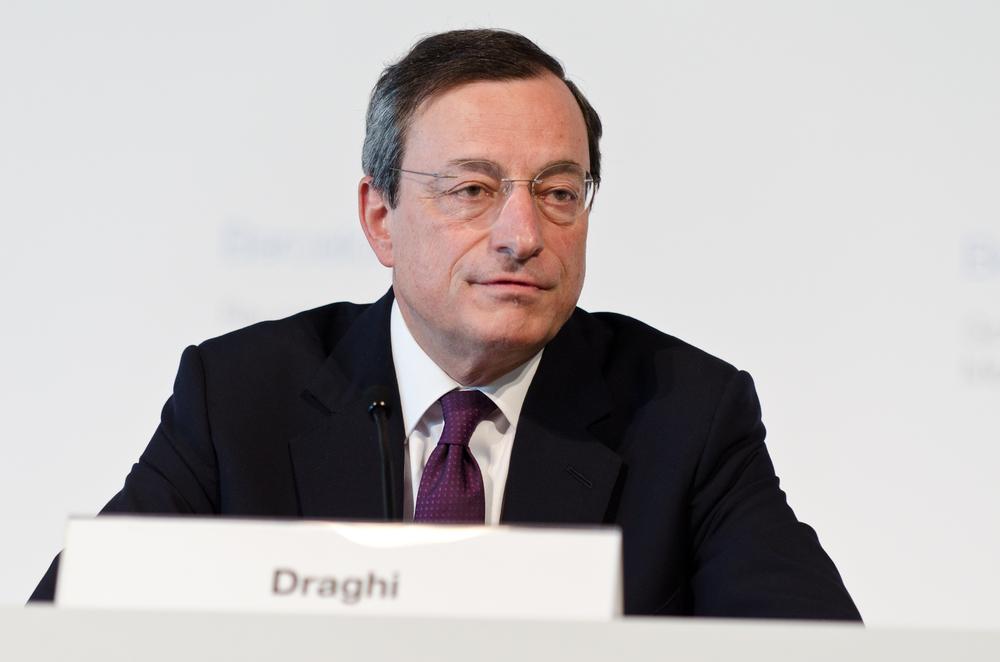In today’s decision on lending and borrowing rates the president of the European Central Bank, Mario Draghi, has left all rates unchanged.
The Central Bank’s interest rate will remain at 0% and the deposit rate stays at -0.4%. The marginal lending facility is held at 0.25%.
The move to keep rates at low levels had been expected. Mario Draghi has frequently confirmed that his policies to lead the recovery of the Euro Area will be focused on adding liquidity to the markets.
Draghi started his credit easing measures in June 2014. He stressed that the ECB’s QE program will continue to run until at least March 2017 and all rates will remain at low levels for an extended period.
In his opening statement to today’s session Draghi stated: “…the recovery of the euro area economy gained momentum at the start of the year. It is expected to proceed at a moderate but steady pace, supported by solid domestic demand and the effective pass-through of our monetary policy measures to the real economy.”
He further reported that since the new easing programs have been initiated, bank lending rates fell by over 80 basis points and reached historically low levels in April this year. Draghi said, the ECB will continue on their current path hoping to encourage economic activity in the Euro through these practices.
In the press conference that followed the release of the decision, Draghi said that European banks are in a better position than in 2009 which to some part was influenced by the ECB’s efforts to strengthen the sector and ensure solvency.
He commented on Brexit noting that European financial markets responded with “encouraging resilience” to the UK vote to leave the EU. This comes only two days after ZEW indicators on European economic sentiment showed pessimistic investor outlook.
In regards to Turkey’s failed coup attempt and how it may affect the Euro zone recovery, he stated that it is difficult to tell how big geo-political issues will impact the economy and with Turkey in particular, it will be very difficult to gauge immediate near term influences on the European economic recovery.
The ECB has indicated that more stimulating monetary measures may still be used as Mario Draghi repeated he will use all tools available to him. He said the ECB will closely watch economic development of the region over the coming months to formulate a appropriate strategy of response. This approach rings the same as the Bank of England’s recent decision to postpone changes to policy measures until post-Brexit movements in the economy become more clear.
Market effects
Before the decision of the ECB became public, stock markets suffered losses on the caution of investors ahead of the news. In unison with poor data on UK retail sales published earlier this morning, the uncertainty over the new ECB monetary policy measures lead to a 0.33% drop in the German DAX30 index. The UK’s FTSE index also incurred losses of 0.48%. The French CAC 40 index lowered 0.57% and the pan European Stoxx 50 index was down 0.57%, this morning at 11am.

